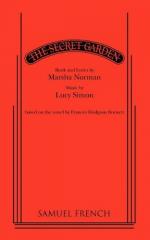|
This section contains 6,774 words (approx. 23 pages at 300 words per page) |

|
SOURCE: "Marsha Norman's She-tragedies," in Making a Spectacle: Feminist Essays on Contmeporary Women's Theatre, edited by Lynda Hart, The University of Michigan Press, 1989, pp. 147-65.
In the essay below, Spencer examines issues related to "feminine identity and female autonomy" in Getting Out, The Laundromat, and 'night, Mother.
In the prologue to the The Fair Penitent (1703), Nicholas Rowe promises "A melancholy tale of private woes: / No Princes here lost Royalty Bemoan, But you shall meet with sorrows like your own" (I.156). The play is the first of Rowe's she-tragedies, a term that has come to be associated not only with Rowe's work, but with any eighteenth-century tragedy in which women are the protagonists or prominent in the pathetic situations depicted. As the prologue suggests, Rowe's use of domestic themes, familiar settings, and more natural diction encouraged closer audience identification with the characters. His plots were constructed to emphasize the...
|
This section contains 6,774 words (approx. 23 pages at 300 words per page) |

|


